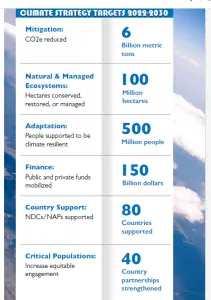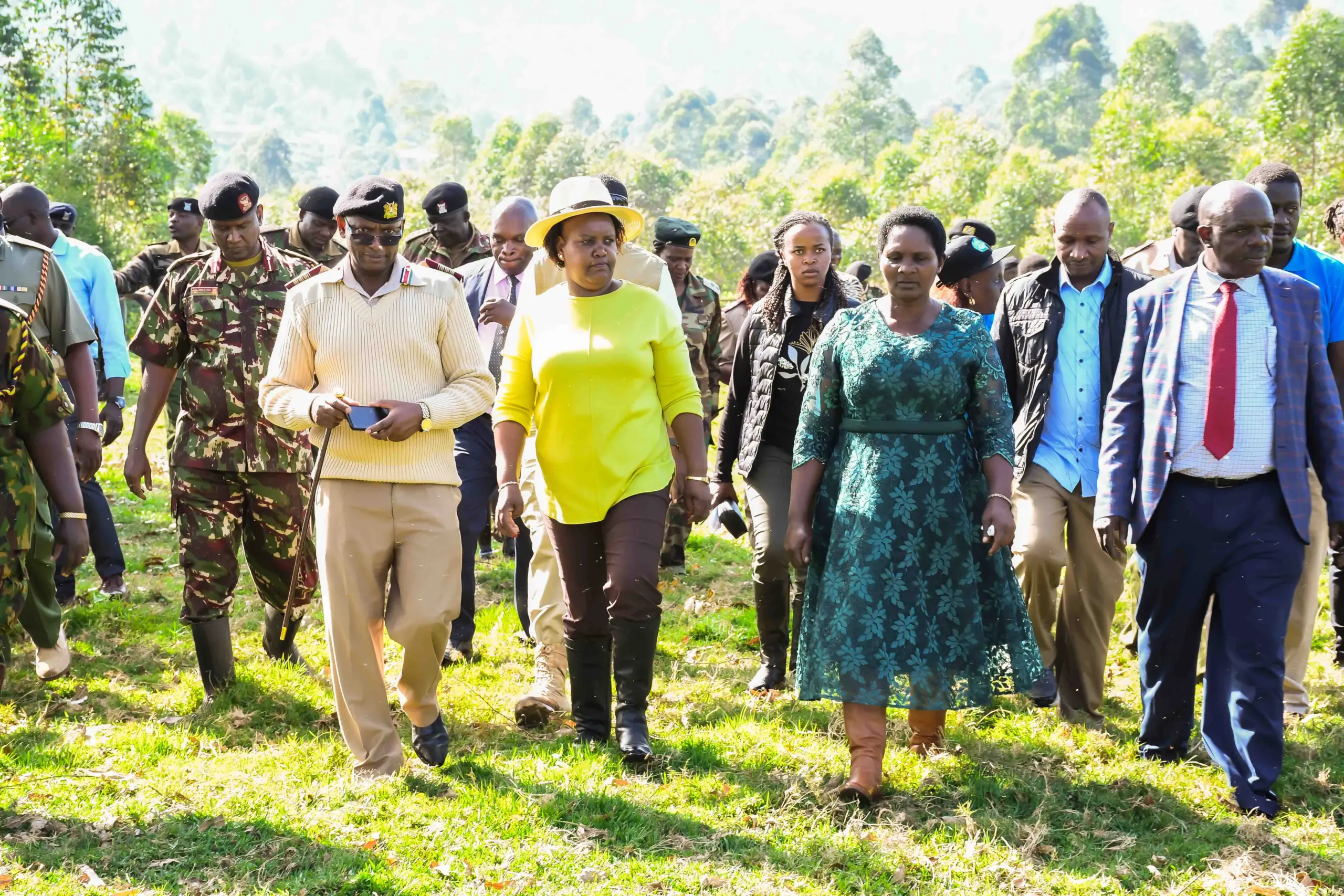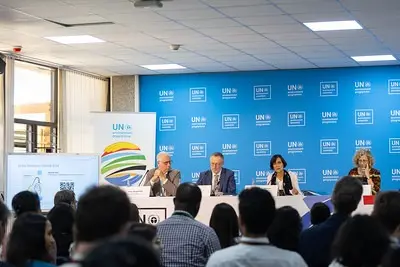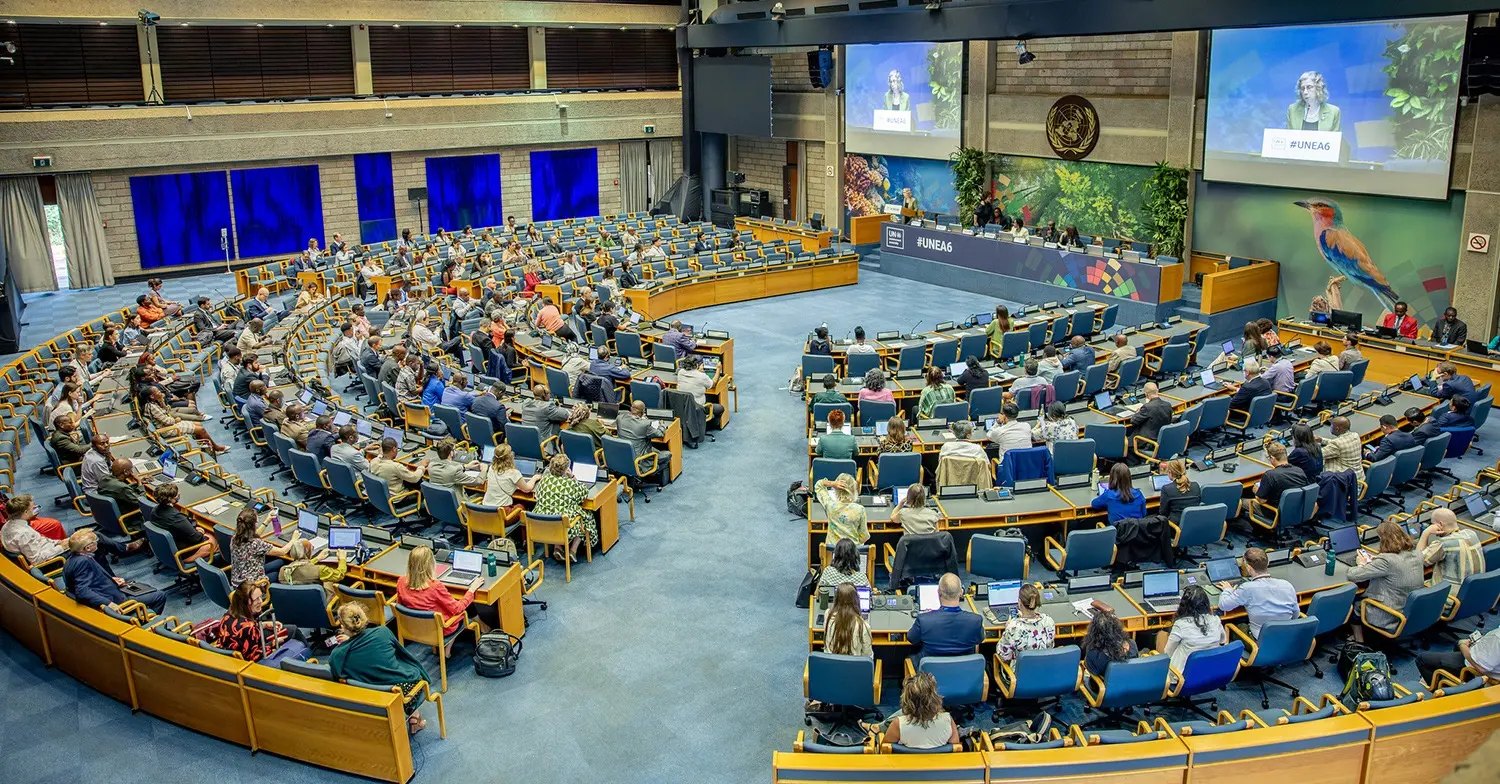
By Arnold Ageta
The U.S. Agency for International Development (USAID) has announced several investment initiatives to support climate action in Africa, aiming to combat the effects of climate change. Addressing the media at the Kenya International Conference Centre (KICC), USAID Chief Climate Officer, Gillian Caldwell, stated that $35 million will be invested this year.
“The investments will support communities across Africa in building their resilience to climate impacts and sustainably growing their economies,” said Caldwell.
In Kenya, USAID will provide $1.4 million to support the government in developing its carbon market activation plan and regulatory and legal framework around carbon to ensure market integrity, transparency, and equity.
Meanwhile, in Tanzania, Deputy Administrator Isobel Coleman announced that USAID will invest an initial $8 million to launch “Tumaini Kupitia Vitendo” (Hope through Action), a five-year partnership with the Jane Goodall Institute aimed at strengthening government, village, and stakeholder management of natural resources in Tanzania.
They also support the implementation of the President’s Emergency Plan for Adaptation and Resilience (PREPARE), the Just Energy Transition Partnerships, and global efforts to conserve critical carbon sinks.
USAID officially expanded its Clean Air Catalyst initiative to Nairobi, which serves as USAID’s flagship effort to reduce air pollution.
According to the press release, USAID and Prosper Africa, through the Prosper Africa Catalytic Investment Facility, will invest a combined $1.75 million in two impact investment funds. These funds aim to leverage a combined $140 million to help communities build resilience to climate risks and invest in African high-growth startups and medium-sized businesses across sectors such as food, climate, health, and education.
Tanzania will also benefit from an initial investment of $2.1 million to improve the climate resilience of coasts and fisheries.
Kenya’s BasiGo, an electric bus company, will also benefit from a $1.5 million investment to scale up access to clean, green public transport, as the company seeks expansion to Rwanda. The investment will be done through Development Innovation Ventures in collaboration with USAID.
“USAID is doubling down on the climate crisis because it jeopardizes the development gains we have made together over the last 60 years since our founding,” said Gillian Caldwell. She added, “It is an opportunity to reinvent economic opportunities and the way we live our lives. We want to position Africa as a key partner to take advantage of these opportunities for advanced sustainable green growth, which is the focus of today’s conference (ACS2023).”
She reiterated that USAID’s Climate Strategy, launched on Earth Day, has ambitious targets, including a reduction of 6 billion metric tons of carbon emissions, equivalent to one and a half times what the USA produced in 2021.

The Strategy indicates that most of the achievements in terms of carbon reductions that USAID will support through technical assistance and financial contributions will be nature-based solutions, ensuring that forests remain standing, marine areas are rich with mangrove and sea grasses that can absorb carbon, and promoting regenerative agriculture.
“Through President Biden’s PREPARE, USAID and other partners seek to reach a million people to provide adaptation and resilience with a heavy emphasis on early warning systems,” she said.
The strategy’s goal is to catalyze $150 billion in public and private finance. To meet the 2030 timeline, an annual amount of $200 to $300 trillion is needed for combined adaptation and mitigation costs. This represents a 600 percent increase compared to the current status of climate finance.
“Even if developed economies step up and invest as they should in delivering the $1 billion target and more, we cannot achieve this without private sector engagement and multilateral engagements—the gap is too large,” she emphasized.
As part of the strategy, USAID is dedicated to partnering with governments worldwide to deliver on their commitments under the Paris Agreement, known as Nationally Determined Contributions (NDCs) and National Adaptation Plans (NAPs).
“Equity is a central pillar of our strategy. We are paying special attention to indigenous people and local communities, as well as youth, women, children, and other marginalized communities who play important roles in addressing this issue,” she concluded.
These investments in Africa are announced as African heads of states gather in Nairobi for the inaugural Africa Climate Summit, which aims to unite Africa in driving green growth and climate finance solutions for Africa and the world. The Summit witnessed the heads of states announcing a Nairobi Declaration to accelerate all efforts to reduce emissions and align with goals set forth in the Paris Agreement, pushing for honoring commitments made in the Agreement.




One thought on “USAID’s $35 Million Climate Crusade in Africa to build resilience and hope”